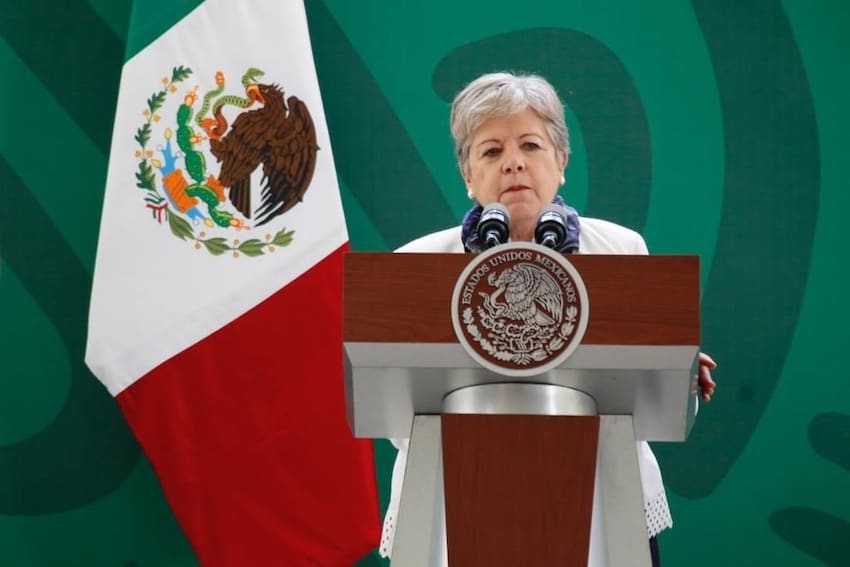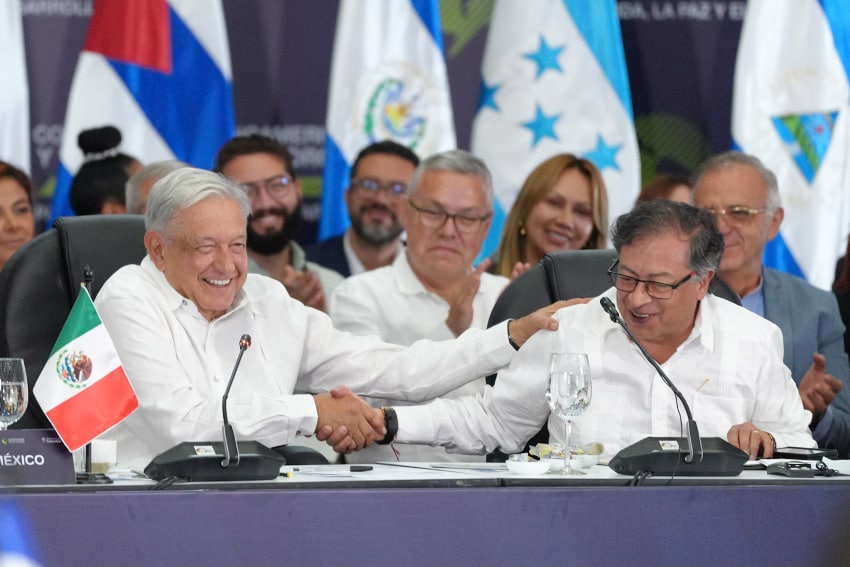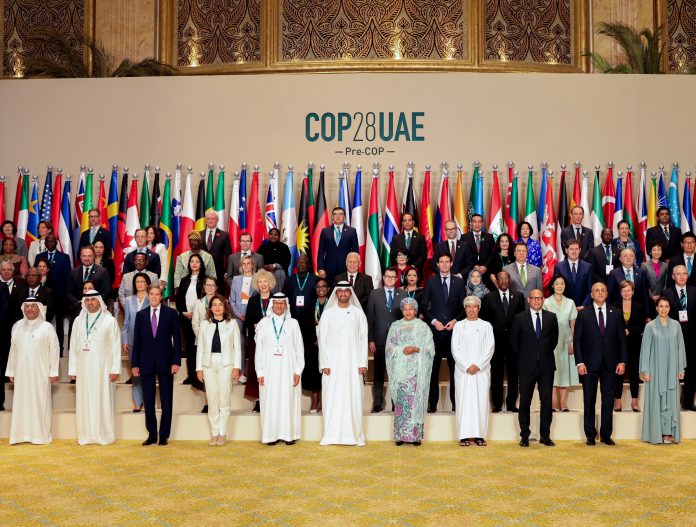Foreign Affairs Minister Alicia Bárcena said Mexico “wants to play a very active role” at the United Nations’ 28th Conference of the Parties on Climate Change (COP28) as she prepares to represent the country on Thursday in Dubai, United Arab Emirates.
Emirati officials expect more than 70,000 people at the two-week confab, which aims to assess where the world stands in limiting emissions to slow global warming.

One of Mexico’s goals this year is to seek more funds for developing and low-income countries suffering the effects of climate change. The creation of this so-called loss-and-damage fund was agreed to in principle at last year’s talks.
There is also speculation that Mexico will present a plan for implementing immediate measures in its own country.
“We need a firm commitment to the global gradual elimination of fossil fuels and their subsidies,” said Javier Arribas Quintana, a European Union adviser based in Mexico City. He was speaking at the recent event “On the Way to COP28” organized by the Mexican Climate Initiative (ICM).
Under President López Obrador, there has been little progress on its own climate targets, and Mexico is the only G20 and OECD (Organization for Economic Cooperation and Development) country that has not set a net-zero emissions target, according to U.K.-based analysts Argus Media.

Isabel Studer Noguez of ICM’s advisory council said Mexico should use COP28 to make and/or present an orderly transition plan, expand renewable energies and reduce the production of fossil fuels.
ICM’s recent report, “Net Zero Emissions Roadmap for Mexico 2060,” states Mexico can feasibly achieve net-zero emissions and a significant reduction of greenhouse gas emissions (GHG) by 2060.
Last year, Mexico committed to a 35% reduction of GHG emissions by 2030. While that sounds more ambitious than a prior 22% reduction goal, the figures used in defining the targets were revised upwards, meaning acceptable emission levels will actually increase, according to Argus.
The analysts also claim that Mexico’s climate targets and actions are rated as “critically insufficient” by the scientific organization Climate Action Tracker.

(COP28/X)
Mexico’s government claims to have made significant progress on the path toward energy transition through the six-year National Development Plan, which started in 2019 at the beginning of López Obrador’s term.
Mexico maintains that it is among the countries with the least carbon dioxide (CO2) emissions and that 38% of its energy comes from clean sources, according to the Federal Electricity Commission (CFE).
López Obrador boasts of his program “Sembrando Vida” (sowing life), which he calls the largest reforestation strategy in the world. “In no country in the world are they planting a billion trees, like we are doing,” he has said.
Argus also found that Mexico committed to generating 35% of its electricity from renewable sources by 2024, but will miss its target by 4% due to a slowdown in renewable energy development under AMLO.
López Obrador has pursued an energy policy that has curtailed private sector renewable development, Argus noted.
“Energy transition remains a key unresolved matter of this administration,” said Moody’s Investors Service analyst Roxana Munoz.
According to Mexico’s finance ministry, Mexico requires US $99.8 billion each year – 7% of its GDP – to counter the effects of climate change and transition toward sustainable development.
